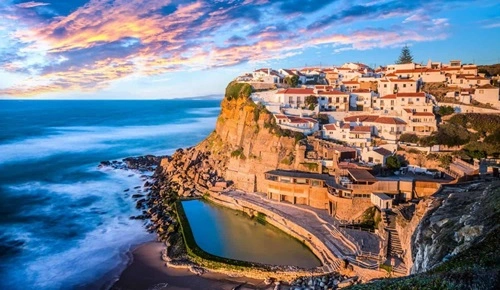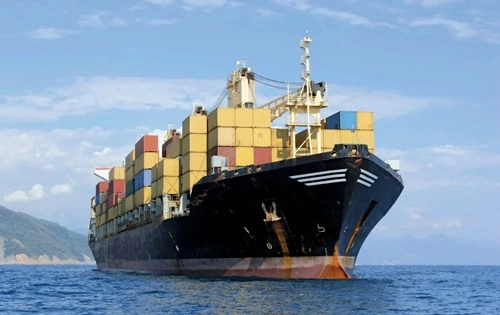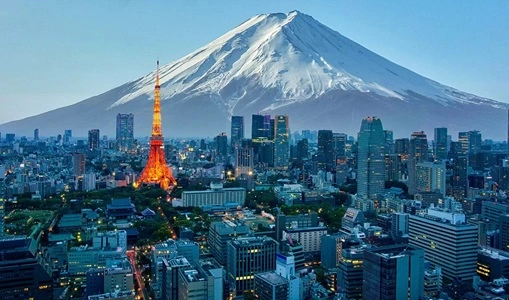Portugal is a gem of southern Europe, known for its stunning coastlines, historical architecture, and rich cultural heritage. With its welcoming people, vibrant cities, and unique traditions, there’s much more to this country than just beautiful beaches and port wine. Here are over 10 fascinating and fun facts about Portugal that will make you want to add it to your travel list.

1. Portugal is One of the Oldest Countries in Europe
Portugal is one of Europe’s oldest countries, with borders that have remained largely unchanged since 1139. The establishment of Portugal as a nation dates back to the 12th century, and it became one of the first European countries to establish a kingdom. This long history is reflected in its well-preserved medieval architecture, castles, and ancient cities, like Coimbra and Porto, which give visitors a glimpse into the past.
2. Lisbon is Older Than Rome
Lisbon, Portugal’s capital, is one of the oldest cities in Western Europe, predating Rome by centuries. Established around 1200 BCE, Lisbon has been inhabited by various civilizations, including the Phoenicians, Romans, and Moors, each of whom left an indelible mark on the city. Today, Lisbon is a vibrant city filled with ancient neighborhoods, like Alfama, that offer a blend of history, culture, and unique charm.
3. Portugal Has the Longest Bridge in Europe
Portugal is home to Europe’s longest bridge, the Vasco da Gama Bridge, which stretches over 10 miles (17 kilometers) across the Tagus River. This stunning engineering feat, named after Portugal’s famous explorer Vasco da Gama, connects Lisbon with the town of Montijo. Opened in 1998, the bridge was built to accommodate Lisbon’s growing traffic and stands as a symbol of the country’s blend of tradition and modernity.
4. Portugal Was a Maritime Powerhouse
Portugal was a leading maritime nation during the Age of Exploration, launching explorations that forever changed global trade and geography. Famous explorers like Vasco da Gama, Ferdinand Magellan, and Bartolomeu Dias helped establish trade routes to Africa, Asia, and South America, bringing wealth and knowledge back to Europe. The Portuguese Empire stretched from Brazil to Goa, and its influence can still be seen in countries worldwide where Portuguese is spoken.
5. Portuguese is the Official Language of Nine Countries
Portuguese isn’t just spoken in Portugal; it’s also the official language of nine other countries, including Brazil, Mozambique, Angola, and Cape Verde. With over 250 million speakers worldwide, Portuguese is the sixth most spoken language in the world. Portugal’s global influence during the Age of Exploration led to the spread of the Portuguese language across multiple continents, making it one of the world’s most spoken languages.
6. The Oldest Bookstore in the World is in Lisbon
Located in Lisbon’s historic Chiado neighborhood, Bertrand Bookstore holds the Guinness World Record as the oldest bookstore still in operation. Established in 1732, this charming bookstore has withstood earthquakes, wars, and cultural shifts to become a beloved institution in Lisbon. Visiting Bertrand is a must for book lovers and history buffs alike, as it offers an opportunity to experience literary history and the charm of Portuguese book culture.
7. Fado: The Soulful Music of Portugal
Fado, Portugal’s traditional music genre, is known for its soulful and melancholic tones, often expressing themes of love, loss, and longing. Originating in Lisbon’s working-class neighborhoods in the early 19th century, Fado is typically performed by a singer accompanied by a Portuguese guitar. Fado was recognized by UNESCO as an Intangible Cultural Heritage of Humanity in 2011, cementing its importance in Portuguese culture. Visiting a Fado house in Lisbon or Porto is a unique and moving experience for anyone exploring Portugal.
8. Portugal Has One of the World’s Highest Fish Consumption Rates
Portuguese cuisine is known for its emphasis on seafood, and Portugal has one of the world’s highest per capita fish consumption rates. Cod, known locally as bacalhau, is a staple and can be prepared in hundreds of ways. Other popular seafood dishes include grilled sardines, octopus salad, and caldeirada (a hearty fish stew). Portugal’s deep-rooted fishing tradition and fresh Atlantic coast make it a paradise for seafood lovers.
9. Home to the World’s Largest Cork Production
Portugal is the world’s leading producer of cork, accounting for nearly 50% of global cork production. The country’s cork oak forests, known as montados, are primarily located in the Alentejo region and play a vital role in Portugal’s economy. Cork is used for wine stoppers, flooring, and even in fashion, with eco-friendly cork products like handbags and shoes gaining popularity. This sustainable industry also supports local biodiversity, as cork oak forests are rich ecosystems that help prevent desertification.
10. Porto Gave Port Wine Its Name
Port wine, one of Portugal’s most famous exports, gets its name from the city of Porto. Port is a fortified wine made exclusively in the Douro Valley in northern Portugal and is aged in cellars located in Porto. This sweet, rich wine is a favorite worldwide and is often enjoyed as a dessert wine. Visitors to Porto can tour local wine cellars, learn about the winemaking process, and sample different varieties of port, from ruby to tawny.
11. Portugal Was a Pioneer in Abolishing the Death Penalty
Portugal was one of the first countries to abolish the death penalty, doing so in 1867. At a time when most of Europe still practiced capital punishment, Portugal took a progressive stance on human rights. This decision reflects the country’s commitment to justice and human rights, which remains strong to this day, as Portugal continues to advocate for humanitarian issues worldwide.
12. The World’s Largest Wave Ever Surfed Was in Portugal
Portugal is famous among surfers for having some of the largest waves in the world. In 2017, Brazilian surfer Rodrigo Koxa broke the world record by riding an 80-foot wave off the coast of Nazaré, a fishing town with a unique underwater canyon that amplifies wave size. Nazaré has since become a hotspot for extreme surfers seeking to break records, and it’s a fantastic destination for anyone wanting to witness the power of the Atlantic Ocean.
13. Pastel de Nata: Portugal’s Iconic Custard Tart
The pastel de nata, or Portuguese custard tart, is one of Portugal’s most beloved pastries and a must-try for visitors. Originating in the 18th century, these tarts were first created by monks in Lisbon’s Jerónimos Monastery. With a creamy custard center and flaky pastry crust, pastel de nata has become a symbol of Portuguese dessert culture. Today, you can find these delicious tarts in bakeries across the country and around the world.
14. Portugal Has One of the Longest Surfable Coastlines in Europe
Portugal’s Atlantic coastline stretches over 500 miles, offering some of Europe’s best surfing spots. From beginner-friendly beaches in the Algarve to the giant waves of Nazaré, Portugal has a wave for every level of surfer. The country’s warm climate, consistent swell, and stunning beaches make it a year-round surf destination. Each year, Portugal hosts international surfing competitions that attract top surfers from around the globe.
15. Portugal’s Love of Azulejos: Colorful Ceramic Tiles
Azulejos, Portugal’s famous ceramic tiles, are an iconic part of the country’s architecture and culture. These hand-painted tiles are used to decorate everything from churches and palaces to train stations and homes. They often depict historical scenes, religious motifs, or geometric patterns in vibrant colors. The tradition of azulejos dates back to the 15th century, when they were introduced to Portugal by the Moors, and they have since become a symbol of Portuguese artistry.
Portugal’s unique combination of natural beauty, rich history, and warm hospitality makes it a truly special destination. Whether exploring the cobbled streets of Porto, indulging in seafood along the coast, or admiring the intricate azulejos in Lisbon, there’s something for everyone in this captivating country. With a strong sense of tradition and a forward-looking mindset, Portugal remains a cultural treasure in Europe and an ideal travel destination for those looking to experience something extraordinary. Whether you’re drawn to its historic sites or its world-class surfing, Portugal’s charm is undeniable and its impact, unforgettable.



